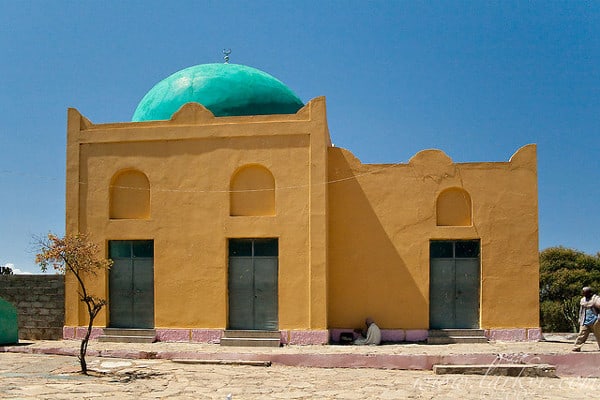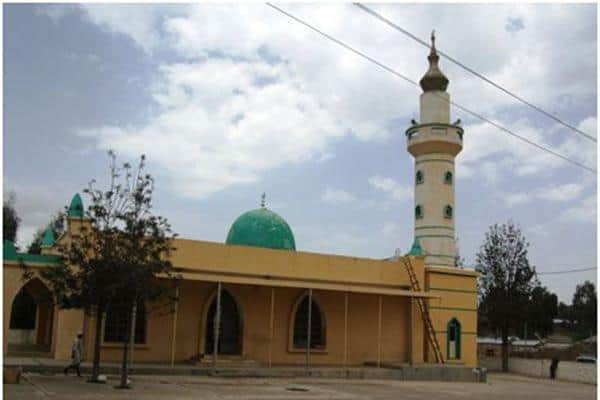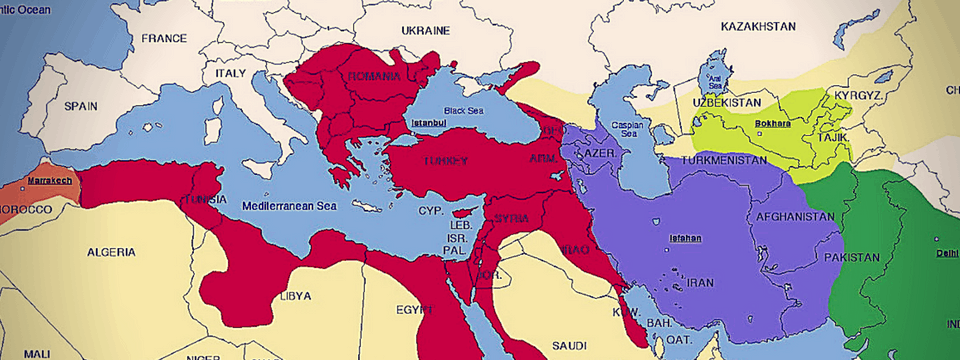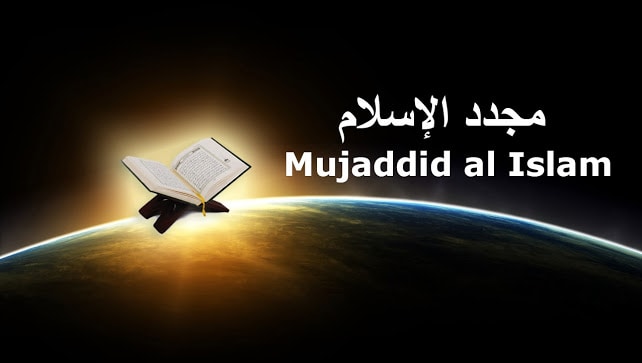For Muslim activists who work with sincerity to order their politics according to Islam and its principles, the pitfalls of explicit participation in un-Islamic political processes is clear. While it is difficult today to avoid the trappings of kufr at many levels of society given its dominance and ubiquity, we can nonetheless choose the processes we explicitly partake in, being concerned as we should be to avoid haram means to noble objectives.
This article looks at an argument that is advanced by some in the ummah implying that a Muslim – a ruler no less – became Muslim and continued to rule by other than Islam as he tried to change his people. The argument is made in reference to the Negus of Ethiopia, with the suggestion that despite becoming Muslim, he continued to rule by kufr with the Prophet’s ﷺ knowledge, suggesting that today too one can go through such means to seek ultimately Islamic outcomes. This article analyses this argument and looks at it closely, offering a response generally and to the evidences that are specifically used.
At a basic level, partaking and participating in political systems that attribute legislative and other power to other than Allah is haram according to the texts, and moreover may consolidate these systems. There is no proof that may be brought to justify participation in such political frameworks after considering the Shar’i evidences to the contrary, which are definite in meaning and authenticity.
The potential for obvious short-term gains and communal benefit from such participation is nonetheless a temptation; it is indeed a test for Muslim activists to ensure that they do not fashion their activism based on calculations of perceived benefit (maslahah) which they decide for themselves thinking that the Shar’a didn’t consider them. It is also incorrect for activists to resort to something not amounting to even a semblance of an evidence (shubhat ad-daleel), in order to justify participation in such political frameworks which govern by other than what Allah (swt) has revealed; even though doing so contradicts the evidences that are definite in meaning and authenticity. These evidences oblige ruling by what Allah (swt) has revealed and prohibit ruling by other than what Allah (swt) has revealed, and likewise prohibit systemic participation in political frameworks not established on such bases.
The argument from the story of the Negus
One story sometimes cited by some activists in the ummah in this discussion is the story of an-Najashi (the Negus) – whose death the Messenger ﷺ announced to the Sahabah the day he died and then prayed Salatul Janazah for him. Some use this as an evidence to justify participation in an un-Islamic political system that rules by other than what Allah (swt) has revealed.
They take the view that the Najashi had embraced Islam in the time of the Messenger ﷺ and continued to rule by the system that he used to rule with before he had embraced Islam, even though it was a non-Islamic system. To prove this, six ahadith are often used (reported by al-Bukhari) relating to Najashi’s death and the prayer that was performed for him. Three of them have been narrated by Jaabir b. ‘Abdullah al-Ansari and the other three by Abu Hurayra.
Closer examination reveals that these 6 evidences cannot stand up as evidences to justify participation in liberal political processes that rule by un-Islamic systems and laws, as some have claimed over the last few decades.
An analysis of the relevant ahadith/evidences
The following points will explain this matter in some detail:
- When Bukhari reported these ahadith, he placed five of them under the heading ‘Bab mawt an-najashi’ (Chapter on the death of an-Najashi) and he reported the sixth in ‘bab al-janaaiz’ (Chapter of funeral prayers). All six ahadith are to do with the death of an-Najashi, the Messenger’s ﷺ informing of the Sahabah about his death, that he was a pious man, and he was their brother, then he ﷺ ordered them to ask Allah (swt) to forgive him, and to pray with him the funeral prayer for an-Najashi. These indicate that he was a Muslim.
- The great Shafi’i scholar Imam Ibn Hajar al-’Asqalaani, in his book Fathul Baari (commentary on the Sahih of Bukhari), commented on Bukhari’s report (on the incident) under the title ‘death of an-Najashi’ rather than his report on his conversion to Islam. He said:
There was confusion that al-Bukhari did not report about his (ie an-Najashi) conversion to Islam, which is its true place, and instead he reported his death. This was because the story related to his embrace of Islam was not proved to him (Imam Bukhari), while it is explicit in his death (that he was a Muslim). So he reported his death story to understand that he (an-Najashi) embraced Islam from the prayer of janazah on him.
- The wording of the ahadith reported by al-Bukhari indicates that the Messenger ﷺ knew of Najashi’s death and his embracing of Islam on the day of his death via revelation. It also indicates that the Sahabah did not know of his embracing of Islam and his death, except when the Messenger ﷺ informed them of it. Thus, in the hadith of Jaabir, he said:
The Messenger ﷺ said when the Najashi died: ‘Today a pious man has died. So stand and pray for your brother Ashimah.’
In the hadith of Abu Hurayra, it mentioned that:
The Rasool of Allah ﷺ informed them of the death of Najashi, the ruler of Habasha, on the day that he died.
This indicates that the Messenger ﷺ came to know of the Najashi’s death and embracing of Islam via revelation on the day that he died. The Messenger’s ﷺ saying to to the Sahabah, as narrated by Jaabir b. ‘Abdullah, that, “Today a pious man has died”, and, “So stand and pray for your brother Ashimah” indicate that they had not known of his embracing Islam, because if they had known that before, there would have been no need for the Messenger ﷺ to use such expressions ‘a pious man’, ‘your brother’. This is because he ﷺ did not use such expressions when he used to call them to the funeral prayer when one of the Sahabah died as though they were not already aware of the person’s Imaan.
- These ahadith indicate that the Najashi had embraced Islam shortly before his death, but they did not explain when he embraced Islam. The wording indicates that the Messenger ﷺ came to know of his death and embracing of Islam through revelation on the day he died, as mentioned before. There is not any authentic report that mentions that the Messenger ﷺ was informed of his embracing of Islam at any other instance.
- These six ahadith contain nothing to indicate that the Najashi, whose death the Messenger ﷺ informed the Sahabah of, was the same Najashi who was the ruler of Habasha (Ethiopia) when the Muslims migrated to it. As well, there is nothing to indicate that he is the same Najashi to whom the Messenger ﷺ sent a letter in which he invited him to Islam. This is because the word ‘Najashi’ is not a proper noun for a specific person. Rather it is a title (laqab) given to every ruler who ruled Habashah, as reported by Imam an-Nawawi in the second volume of his book Sharh Sahih Muslim and as reported by Imam Ibn Hajar al-’Asqalaani in the third volume of his book Al-Isaabah.
- In volume twelve of his explanation of Sahih Muslim, Imam An-Nawawi commented that the Najashi to whom the Messenger ﷺ sent a letter inviting him to Islam at the end of the sixth year of the Hijrah after his return from the expedition of Hudaybiyyah was not the Najashi for whom the prophet ﷺ prayed the Janazah. The text of the hadith is as follows:
Narrated by Anas that the Prophet ﷺ wrote to the Kisra, Qaysar, Najashi and every tyrant, inviting them to Allah (swt). But he was not the Najashi for whom the Prophet ﷺ made the (Janazah) prayer.
From this hadith it becomes clear that the Najashi for whom the Prophet ﷺ prayed is not the Najashi to whom the Muslims migrated in order to live under his protection, and he is not the Najashi to whom the Messenger ﷺ wrote a letter in the 6th year of the Hijrah inviting him to Islam. Rather he is the Najashi who came to power after the death of the Najashi to whom the Prophet ﷺ sent a letter with ‘Amr b. Umayyah ad-Damri inviting him to Islam. He did not respond and did not embrace Islam, because if he had responded and embraced Islam, the Messenger ﷺ would have informed the Sahabah of this and prayed for him, and Ja’far b. Abi Taalib and the immigrants would have known about his conversion.
They returned to the Messenger ﷺ in the 7th year after the conquest of Makkah ie after the Messenger ﷺ had sent the letter to the Najashi. If he had embraced Islam, then it would have been a cause for reverberation and celebration among Muslims, especially after the conquest of Khaybar. The Messenger ﷺ would then have informed them of his conversion, and not restricted his saying regarding the coming of Ja’far:
I do not know what gives me more joy; the conquest of Khaybar or the arrival of Ja’far [Sira of Ibn Hisham].
He should have added: ‘Or by the conversion of Najashi.’ But he did not mention Najashi in this hadith, even though the situation would have necessitated it, if he had responded to his ﷺ da’wah and embraced Islam.
- Those who took the opinion that the Najashi for whom the Messenger ﷺ prayed the Janazah prayer is the same Najashi to whom the Muslims migrated and entered into his protection, and the same Najashi to whom the Messenger ﷺ sent the letter inviting him to Islam at the end of the sixth year of the Hijrah have thereby mistakenly taken this view, because the Najashi to whom the Muslims made hijrah was the one whom the Messenger ﷺ commended, praised and described to those who wished to emigrate to him by saying:
He is a King, under whom no one is oppressed, and his land is a land of truth [Ibn Hisham].
This is because he gave the best protection for those who migrated to him from the Muslims, and gave them security, so they were able to worship Allah (swt) not fearing anyone. He also refused to hand them over to the two delegates of the Quraysh who demanded this, against the wishes of his patriarchs. He prevented them from this, protected them, and told them both:
You are safe in my land and whoever abused you will be fined (punished).
It is also because of his comment on Ja’far’s answer, when he asked him about what the Messenger ﷺ had brought:
Indeed this matter and what ‘Isa has brought emanate from the one lamp”
beside his comment on Ja’far’s answer on the second day, when he asked him about their view of ‘Isa, where he took a stick from the ground and said:
“By Allah, Isa bin Maryam did not exceed what you said more than (the width of) this stick” [Sirah Ibn Hisham].
From all this, they thought that he had embraced Islam even though the Messenger ﷺ had not announced his embracing it. Similarly, Umm Salamah, the wife of the Prophet ﷺ, who was one of the immigrants to Habashah, did not mention that he had embraced Islam, when she talked about him and about what happened to them in the land of Habashah, when she said:
“When we arrived in the land of Habashah, we had the best neighbour; the Najashi. We felt safe in regards of our deen, worshipped Allah (swt) without being harmed and did not hear anything we might hate…”
She also said:
By Allah, we were in such a state, until a man emerged in the Habashah who challenged his authority…We did not ever know a sadness such as happened to us at that time, fearing that man might defeat the Najashi, and hence another man might come who does not recognise of our right, as the Najashi did. After Allah gave victory to the Najashi against his enemy, and strengthened him in his land, by Allah, we never knew a delight as we had then. The Najashi returned (from the battlefield) when Allah destroyed his enemy and strengthened him in his land, and the affair of al-Habashah put in good order. So we remained in his neighbourhood, in the best home until we arrived to the Rasul of Allah ﷺ while he was in Makkah [Sirah Ibn Hisham].
This hadith of Umm Salamah does not indicate that the Najashi embraced Islam.
There is another interesting angle to look at the situation of the Neguses from. Those who say that the Najashi for whom the Messenger prayed is the same Najashi to whom the Messenger ﷺ dispatched the Muhajireen may be completely unaware of this hadith of Anas b. Malik which was reported by Imam Muslim in his Sahih:
That the Prophet ﷺ wrote to the Kisra, Qaysar, Najashi and every tyrant inviting them to Allah (swt). But he was not the Najashi for whom the Prophet ﷺ made the janazah prayer.
They were most likely not even the same Negus!
2 other letters?
As for the two letters mentioned by Muhammad Hamidullah in his book Political documents of the Prophetic Era, they state that the Najashi wrote a letter to the Messenger ﷺ in which he states his conversion to Islam and his readiness to come to the Messenger ﷺ if he orders him to do so; and that he has sent his son Arha b. al-Asham b. Abhar, and the letter was sent when the Messenger ﷺ was in Makkah. As for the second letter, it was mentioned that the Najashi sent it with the Sahabah returning from Habashah whilst he ﷺ was in Madinah.
There had been no mention of these two letters in the sound books of hadith. The author of Political documents of the Prophetic Era mentioned that he took these documents from the history books like Tabari, Qalqashandi, Ibn Kathir and others. He did not mention that he took any of them from the books of hadith.
The books of history are not necessarily completely authentic because they are not concerned with the transmission of the reports like the hadith books. They gather all the reports like the one who gathers wood at night, not knowing whether his hand is falling upon a branch or a snake. Hence, these two letters are of no value, not to mention their contradiction with the hadith of Anas as reported by Imam Muslim, and the narration of Umm Salamah in her talk about Najashi, and the Muhajireen in Habashah, of whom the last was Ja’far, who did not mention that an-Najashi embraced Islam, even though Ja’far returned to the Rasool ﷺ in the seventh year after the conquest of Khaybar and after the Rasool ﷺ sent letters to the Kings and princes. Therefore, those two letters are not correct, and deducing them is not correct as well, so they are rejected for our purposes.
From all of this, it is clear the Najashi who embraced Islam, and on whom the Rasool ﷺ made funeral prayer is not the same Najashi to whom the Muhajireen emigrated. He is also not the same Najashi to whom the Rasul ﷺ sent a letter, inviting him to Islam between the end of the sixth year of Hijrah and the beginning of the seventh year with Amru b. Umayyah ad-Damri.
He is rather the Najashi who assumed the power in Habashah after the death of the Najashi to whom the Rasool ﷺ sent the letter inviting him to Islam.
The Najashi who embraced Islam had taken power in the seventh year. This is because the Messenger ﷺ had sent his messengers to the kings and rulers, including the Najashi, after his return from the expedition of Hudaybiyah. This was at the end of the sixth year of the Hijrah in the month of the Zhul Qa’dah. This Najashi would have died in the seventh year, in which the Najashi who had embraced Islam assumed power, and he was the one for whom the Messenger ﷺ prayed the Salatul Janazah, and whose death was before the conquest of Makkah in the eighth year of the Hijrah as mentioned by Imam al-Bayhaqi in his Dalaa’il an-Nubuwwah.
Hence the period of time between his assuming power, and conversion, and his death was a short time. He secretly embraced Islam and no one knew of his conversion, not even the Messenger ﷺ . The Messenger ﷺ was informed by revelation about his death and conversion on the day that he died, as indicated by the wording of the six ahadith in Bukhari, which he reported about his death. The short period of time that he spent as a Muslim before he died did not enable him to know the rules of Islam. The Prophet’s ﷺ could not know this, and so did not write to him about what he should do.
Implications of the above analysis for the argument at hand
The implications of the above are obvious, especially when one considers that one of the most popular arguments made by people suggesting that active political participation in systems grounded in Kufr is allowed is the one made above: that the Negus who became Muslim continued to rule by kufr, and that this is an evidence for Muslims vying for political power today to alleviate our situation through systems nonetheless based on kufr.
That is why the stories of the Negus cannot be used as an evidence by those who permit participation in un-Islamic political systems for this purpose. It is noteworthy that this story continues to be used by some, no doubt with good intentions, but without accounting for the above knowledge. It is important that du’aat are aware of this flip-side to the argument used and educate others about it, for it has important implications for the activism of many.
May Allah (Swt) guide us to beneficial knowledge, and assist us in acting upon it.
This article has been adapted from a chapter of Sheikh Ahmed Mahmood’s excellent book “The Da’wah to Islam”, which can be downloaded as a PDF here.
![]()


















